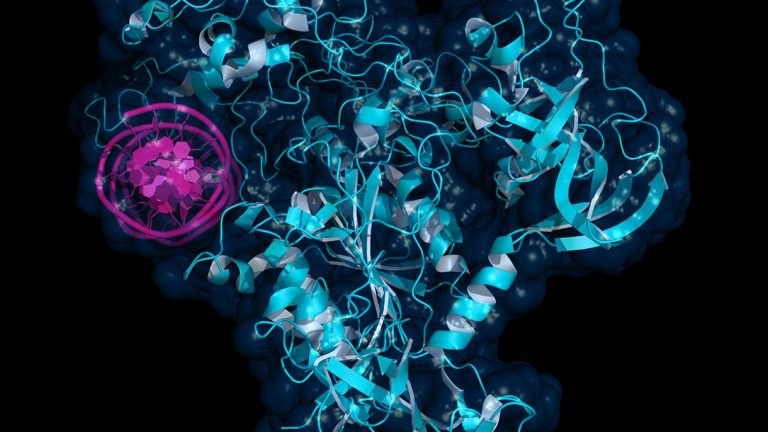PROVIDENCE, R.I. (Brown University) — A new mass spectrometer is coming to Rhode Island to advance research in areas including cancer biology, aging, neurodegenerative diseases, immunology and infectious diseases.
Thanks to a $1.2 million grant from the National Institutes of Health, Brown University will acquire an Orbitrap Ascend Tribrid mass spectrometer, a cutting-edge analytical tool that scientists can use to sequence and quantify proteins as they study the cell biology that underlies disease.
Arthur Salomon, a professor of molecular and cell biology and biochemistry at Brown University, said technologically advanced and sensitive instruments will enable rapid analysis of single-cell proteins.
“This single-cell analysis capability does not currently exist at Brown and is essential for understanding disease biology,” he said, noting that analyses that currently take up to four hours can be completed in about 30 minutes with the new technology, while also achieving unprecedented sensitivity and precision.
Salomon is the dean of Brown University's Proteomics Core Facility and the principal investigator on the federal grant. Proteomics is the study of protein structure and function, and the facility provides proteomics equipment and expertise to Brown University researchers and others in the Rhode Island scientific community.
Salomon explained that the introduction of the mass spectrometer will enhance the facility's capabilities, enabling cutting-edge research in key disease areas. For example, the instrument, supporting Brown University's Legorreta Cancer Center, will aid in cancer biology research, where the ability to detect and quantify specific proteins and their changes is essential to understand disease mechanisms and develop new treatments. It will also aid research at the Center for the Biology of Aging and the Carney Brain Science Institute, where identifying disease-associated biomarkers from samples is essential. In immunology and infectious disease research, the system will enable the identification and quantification of immune system proteins and molecules from parasites or pathogens, aiding in the development of vaccines and treatments, Salomon said.
The Orbitrap Ascend Tribrid mass spectrometer is a cutting-edge analytical tool that scientists can use to sequence and quantify proteins as they study the cell biology that underlies disease. Installed in the Proteomics Core Facility in Brown University's Department of Molecular and Cell Biology and Biochemistry, at 70 Ship St. in Providence, the mass spectrometer will be available to researchers across campus, as well as at Brown's affiliated hospitals and other universities across the state.
Nicholas DaSilva, proteomics core facility manager, said that as the most sophisticated shared mass spectrometer in the state, the tool will support the facility's mission of providing well-maintained, state-of-the-art instrumentation and fundamental proteomics expertise to the scientific communities at Brown and the University of Rhode Island.
“This new grant will provide Rhode Island researchers with rapid, sensitive and robust proteomic analytical capabilities,” DaSilva said. “PCF will provide both consulting and custom proteomic services to the principal investigators and their research staff.” The mass spectrometer will also open new possibilities for research in a variety of fields, from evolutionary biology to metabolic syndrome.
In his role as facility manager, DaSilva helps researchers design proteomic experiments and interpret the resulting data, allowing them to focus on what he calls “the fun part: understanding the biology that the data means.”
Salomon estimates that at least 17 researchers working on existing projects funded by the National Institutes of Health and the National Science Foundation will use the new equipment immediately, in addition to upcoming research activities.
Because of the time it will take to custom build the mass spectrometer, ship it from Germany, assemble it and establish the workflow, the system is expected to be ready for use within the next four to six months. The new mass spectrometer uses technology developed by the national network of proteome cores and will provide Rhode Island researchers with a highly advanced tool for protein analysis, Salomon said.
“This will create critically important research infrastructure for the state of Rhode Island,” Salomon said. “It will create a world-class facility for conducting life sciences research.”
This research is supported by the National Institutes of Health grant number 1S10OD036295-01.

